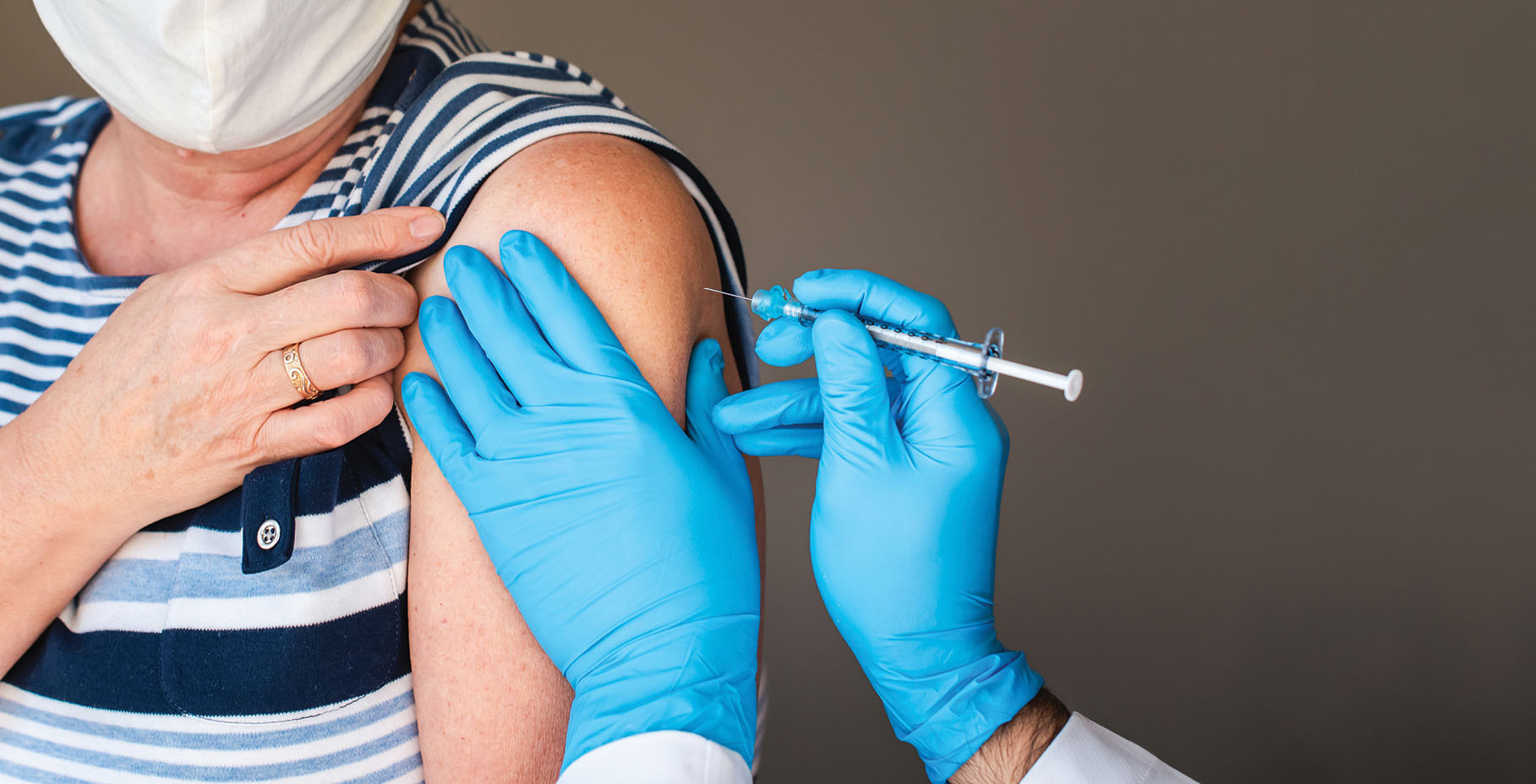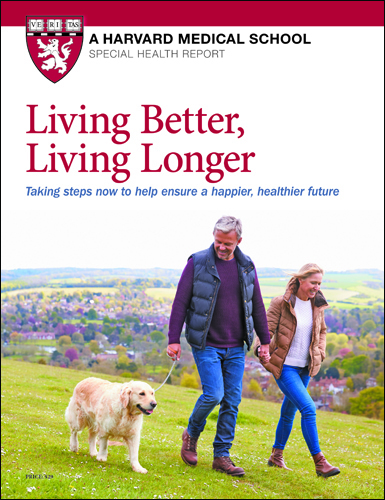More protection for your heart? It's just a shot away
You can lower your risks for heart attack, stroke, and death from heart disease by staying current on vaccinations.
- Reviewed by Deepak L. Bhatt, M.D., M.P.H, Former Editor in Chief, Harvard Heart Letter

With all the attention on COVID-19 vaccines over the past two years, you may have neglected to receive other routine vaccines recommended for older adults — namely, those that protect against influenza, pneumonia, and shingles. But if you have heart disease or are at risk for it, these shots are important. And early fall is a great time to get back on schedule.
Earlier this year, a large study confirmed that flu vaccines may help lower the risk of serious cardiovascular complications (see "Flu shot linked to lower heart-related risks"). The risk of heart attack and stroke rises in the year following a bout of either pneumonia (a serious lung infection caused by bacteria, viruses, or fungi) or shingles (a reawakening of the chickenpox virus that emerges through the nerves and causes a painful rash). Vaccines can help lower these risks as well.
"COVID puts an important and renewed focus on the link between infections and cardiovascular disease," says Dr. Ankeet S. Bhatt, a cardiologist at Harvard-affiliated Brigham and Women's Hospital. Even a mild COVID-19 infection can raise a person's risk of heart problems (see "How COVID-19 can compromise your heart health" in the July 2022 Heart Letter). But physicians have long known that serious infections — especially the flu — can leave people more vulnerable to a heart attack, heart failure, and dying from heart disease.
Flu shot linked to lower heart-related risksEven healthy people can develop serious complications from a bout of influenza (flu), with those 65 and older facing the greatest risk. Can getting a flu vaccine help lower the risk of heart-related problems? A study in the April 1, 2022, issue of JAMA Network Open explored this question. What: Data pooled from six separate studies done between 2000 and 2021. Who: 9,001 people in total, with an average age of 66. Just over half had heart disease, and about 43% were women. How: Researchers compared the rates of heart-related problems (including heart attack, stroke, heart failure, and death from heart disease) between people who received a flu vaccine and people who received a placebo or no vaccine. They followed participants for an average of nine months. Key findings: People who received a flu vaccine had a 34% lower risk of serious heart problems compared with those who didn't get the vaccine. Among those who'd had a heart attack in the year before they got vaccinated, the risk was 45% lower. |
Infection dangers
When you have any type of infection, your body releases molecules called cytokines, which stimulate your immune system to combat the offending pathogen. This response can affect the cardiovascular system via two different pathways, Dr. Bhatt explains. "Cytokines can depress the heart's ability to pump normally. The resulting immune response also seems to be involved in accelerating the buildup of plaque inside the arteries, known as atherosclerosis," he says.
Influenza
A yearly flu shot may lower your risk of catching the disease roughly by half. The CDC recommends getting the vaccine in September or October. Several different types of flu shots are available; experts advise getting whichever one is most readily available. If you're 65 or older, three vaccines (Fluzone High-Dose Quadrivalent, Flublock Quadrivalent recombinant, and Fluad Quadrivalent adjuvanted) may offer slightly better protection than the regular-dose shot and are the preferred choice.
Pneumonia
This year, the FDA approved two new pneumonia vaccines, PCV20 (Prevnar 20) and PCV15 (Vaxneuvance). They replace two older vaccines, PCV13 and PPSV23.
The CDC now recommends that people ages 65 or older, as well as adults younger than 65 at high risk for pneumococcal disease, get either
- a single dose of PCV20
- a dose of PCV15, followed a year later by a dose of the older vaccine PPSV23.
If you have already received one or two of the older vaccines, ask your doctor whether you need another shot.
Shingles
Everyone 50 and older should get two doses of the shingles vaccine (Shingrix), given two to six months apart. You should still get this vaccine even if
- you're not sure you had chickenpox as a child
- you've already had shingles
- you got the earlier shingles vaccine, Zostavax, which is no longer available in the United States.
Image: © Cavan Images/Getty Images
About the Author

Julie Corliss, Executive Editor, Harvard Heart Letter
About the Reviewer

Deepak L. Bhatt, M.D., M.P.H, Former Editor in Chief, Harvard Heart Letter
Disclaimer:
As a service to our readers, Harvard Health Publishing provides access to our library of archived content. Please note the date of last review or update on all articles.
No content on this site, regardless of date, should ever be used as a substitute for direct medical advice from your doctor or other qualified clinician.
















